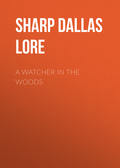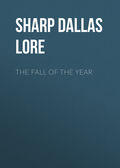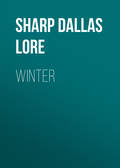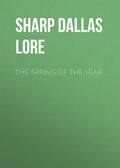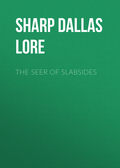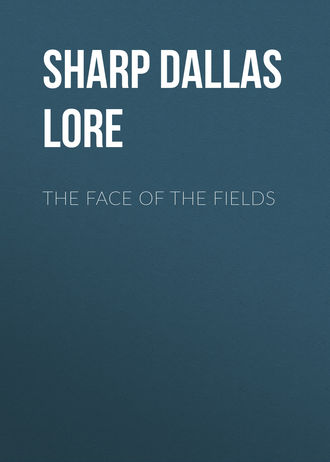
Sharp Dallas Lore
The Face of the Fields
IV
THE SCARCITY OF SKUNKS
THE ragged quilt of snow had slipped from the shoulders of the slopes, the gray face of the maple swamp showed a flush of warmth, and the air, out of the south to-day, breathed life, the life of buds and catkins, of sappy bark, oozing gum, and running water – the life of spring; and through the faintly blending breaths, as a faster breeze ran down the hills, I caught a new and unmistakable odor, single, pointed, penetrating, the sign to me of an open door in the wood-lot, to me, indeed, the Open Sesame of spring.
“When does the spring come? And who brings it?” asks the watcher in the woods. “To me spring begins when the catkins on the alders and the pussy-willows begin to swell,” writes Mr. Burroughs, “when the ice breaks up on the river and the first sea-gulls come prospecting northward.” So I have written, also; written verses even to the pussy-willow, to the bluebird, and to the hepatica, as spring’s harbingers; but never a line yet to celebrate this first forerunner of them all, the gentle early skunk. For it is his presence, blown far across the February snow, that always ends my New England winter and brings the spring. Of course there are difficulties, poetically, with the wood-pussy. I don’t remember that even Whitman tried the theme. But, perhaps, the good gray poet never met a spring skunk in the streets of Camden. The animal is comparatively rare in the densely populated cities of New Jersey.
It is rare enough here in Massachusetts; at least, it used to be; though I think, from my observations, that the skunk is quietly on the increase in New England. I feel very sure of this as regards the neighborhood immediate to my farm.
This is an encouraging fact, but hard to be believed, no doubt. I, myself, was three or four years coming to the conviction, often fearing that this little creature, like so many others of our thinning woods, was doomed to disappear. But that was before I turned to keeping hens. I am writing these words as a naturalist and nature-lover, and I am speaking also with the authority of one who keeps hens. Though a man give his life to the study of the skunk, and have not hens, he is nothing. You cannot say, “Go to, I will write an essay about my skunks.” There is no such anomaly as professional nature-loving, as vocational nature-writing. You cannot go into your woods and count your skunks. Not until you have kept hens can you know, can you even have the will to believe, the number of skunks that den in the dark on the purlieus of your farm.
That your neighbors keep hens is not enough. My neighbors’ hens were from the first a stone of stumbling to me. That is a peculiarity of next-door hens. It would have been better, I thought, if my neighbors had had no hens. I had moved in among these half-farmer folk, and while I found them intelligent enough, I immediately saw that their attitude toward nature was wholly wrong. They seemed to have no conception of the beauty of nature. Their feeling for the skunk was typical: they hated the skunk with a perfect hatred, a hatred implacable, illogical, and unpoetical, it seemed to me, for it was born of their chicken-breeding.
Here were these people in the lap of nature, babes in nature’s arms, knowing only to draw at her breasts and gurgle, or, the milk failing, to kick and cry. Mother Nature! She was only a bottle and rubber nipple, only turnips and hay and hens to them. Nature a mother? a spirit? a soul? fragrance? harmony? beauty? Only when she cackled like a hen.
Now there is something in the cackle of a hen, a very great deal, indeed, if it is the cackle of your own hen. But the morning stars did not cackle together, and there is still a solemn music in the universe, a music that is neither an anvil nor a barnyard chorus. Life ought to mean more than turnips, more than hay, more than hens to these rural people. It ought, and it must. I had come among them. And what else was my coming but a divine providence, a high and holy mission? I had been sent unto this people to preach the gospel of the beauty of nature. And I determined that my first text should be the skunk.
All of this, likewise, was previous to the period of my hens.
It was now, as I have said, my second February upon the farm, when the telltale wind brought down this poignant message from the wood-lot. The first spring skunk was out! I knew the very stump out of which he had come – the stump of his winter den. Yes, and the day before, I had actually met the creature in the woods, for he had been abroad now something like a week. He was rooting among the exposed leaves in a sunny dip, and I approached to within five feet of him, where I stood watching while he grubbed in the thawing earth. Buried to the shoulders in the leaves, he was so intent upon his labor that he got no warning of my presence. My neighbors would have knocked him over with a club, – would have done it eagerly, piously, as unto the Lord. What did the Almighty make such vermin for, anyway? No one will phrase an answer; but every one will act promptly, as by command and revelation.
I stood several minutes watching, before the little wood-pussy paused and pulled out his head in order to try the wind. How shocked he was! He had been caught off his guard, and instantly snapped himself into a startled hump, for the whiff he got on the wind said danger!– and nigh at hand! Throwing his pointed nose straight into the air, and swinging it quickly to the four quarters, he fixed my direction, and turning his back upon me, tumbled off in a dreadful hurry for home.
This interesting, though somewhat tame, experience, would have worn the complexion of an adventure for my neighbors, a bare escape, – a ruined Sunday suit, or, at least, a lost jumper or overalls. I had never lost so much as a roundabout in all my life. My neighbors had had innumerable passages with this ramping beast, most of them on the edge of the dark, and many of them verging hard upon the tragic. I had small patience with it all. I wished the whole neighborhood were with me, that I might take this harmless little wood-pussy up in my arms and teach them again the first lesson of the Kingdom of Heaven, and of this earthly Paradise, too, and incidentally put an end forever to these tales of Sunday clothes and nights of banishment in the barn.
As nobody was present to see, of course I did not pick the wood-pussy up. I did not need to prove to myself the baselessness of these wild misgivings; nor did I wish, without good cause, further to frighten the innocent creature. I had met many a skunk before this, and nothing of note ever had happened. Here was one, taken suddenly and unawares, and what did he do? He merely winked and blinked vacantly at me over the snow, trying vainly to adjust his eyes to the hard white daylight, and then timidly made off as fast as his pathetic legs could carry him, fetching a compass far around toward his den.
I accompanied him, partly to see him safely home, but more to study him on the way, for my neighbors would demand something else than theory and poetry of my new gospel: they would require facts. Facts they should have.
I had been a long time coming to my mind concerning the skunk. I had been thinking years about him; and during the previous summer (my second here on the farm) I had made a careful study of the creature’s habits, so that even now I had in hand material of considerable bulk and importance, showing the very great usefulness of the animal. Indeed, I was about ready to embody my beliefs and observations in a monograph, setting forth the need of national protection – of a Committee of One Hundred, say, of continental scope, to look after the preservation and further introduction of the skunk as the friend and ally of man, as the most useful of all our insectivorous creatures, bird or beast.
What, may I ask, was this one of mine doing here on the edge of the February woods? He was grubbing. He had been driven out of his winter bed by hunger, and he had been driven out into the open snowy sunshine by the cold, because the nights (he is nocturnal) were still so chill that the soil would freeze at night past his ploughing. Thus it chanced, at high noon, that I came upon him, grubbing among my soft, wet leaves, and grubbing for nothing less than obnoxious insects!
My heart warmed to him. He was ragged and thin, he was even weak, I thought, by the way he staggered as he made off. It had been a hard winter for men and for skunks, particularly hard for skunks on account of the unbroken succession of deep snows. This skunk had been frozen into his den, to my certain knowledge, since the last of November.
Nature is a severe mother. The hunger of this starved creature! To be put to bed without even the broth, and to be locked in, half awake, for nearly three months. Poor little beastie! Perhaps he hadn’t intelligence enough to know that those gnawings within him were pain. Perhaps our sympathy is all agley. Perhaps. But we are bound to feel it when we watch him satisfying his pangs with the pestiferous insects of our own wood-lot.
I saw him safely home, and then returned to examine the long furrows he had ploughed out among the leaves. I found nothing to show what species of insects he had eaten, but it was enough to know that he had been bent on bugs – gypsy-moth eggs, maybe, on the underside of some stick or stone, where they had escaped the keen eye of the tree-warden. We are greatly exercised over this ghastly caterpillar. But is it entomologists, and national appropriations, and imported parasites that we need to check the ravaging plague? These things might help, doubtless; but I was intending to show in my monograph that it is only skunks we need; it is the scarcity of skunks that is the whole trouble – and the abundance of cats.
My heart warmed, I say, as I watched my one frail skunk here by the snowy woodside, and it thrilled as I pledged him protection, as I acknowledged his right to the earth, his right to share life and liberty and the pursuit of happiness with me. He could have only a small part in my life, doubtless, but I could enter largely into his, and we could live in amity together – in amity here on this bit of the divine earth, anyhow, if nowhere else under heaven.
This was along in February, and I was beginning to set my hens.
A few days later, in passing through the wood-lot, I was surprised and delighted to see three skunks in the near vicinity of the den, – residents evidently of the stump! “Think!” I exclaimed to myself, “think of the wild flavor to this tame patch of woods! And the creatures so rare, too, and beneficial! They multiply rapidly, though,” I thought, “and I ought to have a fine lot of them by fall. I shall stock the farm with them.”
This was no momentary enthusiasm. In a book that I had published some years before I had stoutly championed the skunk. “Like every predatory creature,” I wrote, “the skunk more than balances his debt for corn and chickens by his destruction of obnoxious vermin. He feeds upon insects and mice, destroying great numbers of the latter by digging out the nests and eating the young. But we forget our debt when the chickens disappear, no matter how few we lose. Shall we ever learn to say, when the red-tail swoops among the pigeons, when the rabbits get into the cabbage, when the robins rifle the cherry trees, and when the skunk helps himself to a hen for his Thanksgiving dinner – shall we ever learn to love and understand the fitness of things out-of-doors enough to say, ‘But then, poor beastie, thou maun live’?”
Since writing those warm lines I had made further studies upon the skunk, all establishing the more firmly my belief that there is a big balance to the credit of the animal. Meantime, too, I had bought this small farm, with a mowing field and an eight-acre wood-lot on it; with certain liens and attachments on it, also, due to human mismanagement and to interference with the course of Nature in the past. Into the orchard, for instance, had come the San José scale; into the wood-lot had crawled the gypsy-moth – human blunders! Under the sod of the mowing land had burrowed the white grub of the June-bugs. On the whole fourteen acres rested the black shadow of an insect plague. Nature had been interfered with and thwarted. Man had taken things into his own clumsy hands. It should be so no longer on these fourteen acres. I held the deed to these, not for myself, nor for my heirs, but for Nature. Over these few acres the winds of heaven should blow free, the birds should sing, the flowers should grow, and through the gloaming, unharmed and unaffrighted, the useful skunk should take his own sweet way.
The preceding summer had been a season remarkable for the ravages of the June-bug. The turf in my mowing went all brown and dead suddenly in spite of frequent rains. No cause for the trouble showed on the surface of the field. You could start and with your hands roll up the tough sod by the yard, as if a clean-cutting knife had been run under it about an inch below the crowns. It peeled off under your feet in great flakes. An examination of the soil brought to light the big fat grubs of the June-bugs, millions of the ghastly monsters! They had gone under the grass, eating off the roots so evenly and so thoroughly that not a square foot of green remained in the whole field.
It was here that the skunk did his good work (I say “the skunk,” for there was only one on the farm that summer, I think). I would go into the field morning after morning to count the holes he had made during the night in his hunt for the grubs. One morning I got over a hundred holes, all of them dug since last sundown, and each hole representing certainly one grub, possibly more; for the skunk would hear or smell his prey at work in the soil before attempting to dig.
A hundred grubs for one night, by one skunk! It took me only a little while to figure out the enormous number of grubs that a fair-sized family of skunks would destroy in a summer. A family of skunks would rid my farm of the pest in a single summer and make inroads on the grubs of the entire community.
Ah! the community! the ignorant, short-sighted, nature-hating community! What chance had a family of skunks in this community? And the fire of my mission burned hot within me.
And so did my desire for more skunks. My hay crop was short, was nil, in fact, for the hayfield was as barren of green as the hen-yard. I had to have it ploughed and laid down again to grass. And all because of this scarcity of skunks.
Now, as the green of the springing blades began to show through the melting snow, it was with immense satisfaction that I thought of the three skunks under the stump. That evening I went across to my neighbor’s, the milkman’s, and had a talk with him over the desirability, the necessity indeed, of encouraging the skunks about us. I told him a good many things about these harmless and useful animals that, with all his farming and chicken-raising, he had never known.
But these rural folk are quite difficult. It is hard to teach them anything worth while, so hopelessly surrounded are they with things – common things. If I could only get them into a college class-room – removed some way from hens and hoes – I might, at least, put them into a receptive attitude. But that cannot be. Perhaps, indeed, I demand too much of them. For, after all, it takes a naturalist, a lover of the out-of-doors, to appreciate the beautiful adjustments in nature. A mere farmer can hardly do it. One needs a keen eye, but a certain aloofness of soul also, for the deeper meaning and poetry of nature. One needs to spend a vacation, at least, in the wilderness and solitary place, where no other human being has ever come, and there, where the animals know man only as a brother, go to the school of the woods and study the wild folk, one by one, until he discovers them personally, temperamentally, all their likes and dislikes, their little whimseys, freaks, and fancies – all of this, there, far removed from the cankering cares of hens and chickens, for the sake of the right attitude toward nature.
My nearest neighbor had never been to the wilderness. He lacked imagination, too, and a ready pen. Yet he promised not to kill my three skunks in the stump; a rather doubtful pledge, perhaps, but at least a beginning toward the new earth I hoped to see.
Now it was perfectly well known to me that skunks will eat chickens if they have to. But I had had chickens – a few hens – and had never been bothered by skunks. I kept my hens shut up, of course, in a pen – the only place for a hen outside of a pie. I knew, too, that skunks like honey, that they had even tampered with my hives, reaching in at night through the wide summer entrances and tearing out the brood combs. But I never lost much by these depredations. What I felt more was the destruction of the wild bees and wasps and ground-nesting birds, by the skunks.
But these were trifles! What were a few chickens, bees, yellow-jackets, and even the occasional bird’s-nest, against the hay-devouring grubs of the June-bug! And as for the characteristic odor which drifted in now and again with the evening breeze, that had come to have a pleasant quality for me, floating down across my two wide acres of mowing.
February passed gently into March, and my chickens began to hatch. Every man must raise chickens at some period of his life, and I was starting in for my turn now. Hay had been my specialty heretofore, making two blades grow where there had been one very thin one. But once your two acres are laid down, and you have a stump full of skunks, near by, against the ravages of the June-bugs, then there is nothing for you but chickens or something, while you wait. I got Rhode Island Reds, fancy exhibition stock, – for what is the use of chickens if you cannot take them to the show?
The chickens began to hatch, little downy balls of yellow, with their pedigrees showing right through the fuzz. How the sixty of them grew! I never lost one. And now the second batch of sitters would soon be ready to come off.
Then one day, at the morning count, five of one hen’s brood were gone! I counted again. I counted all the other broods. Five were gone!
My nearest neighbor had cats, mere barn cats, as many as ten, at the least. I had been suspicious of those cats from the first. So I got a gun. Then more of my chickens disappeared. I could count only forty-seven.
I shifted the coop, wired it in, and stretched a wire net over the top of the run. Nothing could get in, nor could a chicken get out. All the time I was waiting for the cat.
A few nights after the moving of the coop a big hole was dug under the wire fence of the run, another hole under the coop, and the entire brood of Rhode Island Reds was taken.
Then I took the gun and cut across the pasture to my neighbor’s.
“Hard luck,” he said. “It’s a big skunk. Here, you take these traps, and you’ll catch him; anybody can catch a skunk.”
And I did catch him. I killed him, too, in spite of the great scarcity of the creatures. Yet I was sorry, and, perhaps, too hasty; for catching him near the coop was no proof. He might have wandered this way by chance. I should have put him in a bag and carried him down to Valley Swamp and liberated him.
That day, while my neighbor was gone with his milk wagon, I slipped through the back pasture and hung the two traps up on their nail in the can-house.
I went anxiously to the chicken-yard the next morning. All forty came out to be counted. It must have been the skunk, I was thinking, as I went on into the brooding-house, where six hens were still sitting.
One of the hens was off her nest and acting queerly. Her nest was empty! Not a chick, not a bit of shell! I lifted up the second hen in the row, and of her thirteen eggs, only three were left. The hen next to her had five eggs; the fourth hen had four. Forty chickens gone (counting them before they were hatched), all in one night.
I hitched up the horse and drove thoughtfully to the village, where I bought six skunk-traps.
“Goin’ skunkin’ some, this spring,” the store man remarked, as he got me the traps, adding, “Well, they’s some on ’em. I’ve seen a scaac’ty of a good many commodities, but I never yet see a scaac’ty o’ skunks.”
I didn’t stop to discuss the matter, being a trifle uncertain just then as to my own mind, but hurried home with my six traps. Six, I thought, would do to begin with, though I really had no conception of the number of cats (or skunks) it had taken to dispose of the three and one third dozens of eggs (at three dollars a dozen!) in a single night.
Early that afternoon I covered each sitting hen so that even a mouse could not get at her, and fixing the traps, I distributed them about the brooding-house floor; then, as evening came on, I pushed a shell into each barrel of the gun, took a comfortable perch upon a keg in the corner of the house, and waited.
I had come to stay. Something was going to happen. And something did happen, away on in the small hours of the morning, namely – one little skunk. He walked into a trap while I was dozing. He seemed pretty small hunting then, but he looms larger now, for I have learned several more things about skunks than I knew when I had the talk with my neighbor: I have learned, for one thing, that forty eggs, soon to hatch, are just an average meal for the average half-grown skunk.
The catching of these two thieves put an end to the depredations, and I began again to exhibit in my dreams, when one night, while sound asleep, I heard a frightful commotion among the hens. I did the hundred-yard dash to the chicken-house in my unforgotten college form, but just in time to see the skunk cross the moonlit line into the black woods ahead of me.
He had wrought dreadful havoc among the thoroughbreds. What devastation a skunk, single-handed, can achieve in a pen of young chickens beggars all description.
I was glad that it was dead of night, that the world was home and asleep in its bed. I wanted no sympathy. I wished only to be alone, alone in the cool, the calm, the quiet of this serene and beautiful midnight. Even the call of a whippoorwill in the adjoining pasture worried me. I desired to meditate, yet clear, consecutive thinking seemed strangely difficult. I felt like one disturbed. I was out of harmony with this peaceful environment. Perhaps I had hurried too hard, or I was too thinly clothed, or perhaps my feet were cold and wet. I only know, as I stooped to untwist a long and briery runner from about my ankle, that there was great confusion in my mind, and in my spirit there was chaos. I felt myself going to pieces, – I, the nature-lover! Had I not advocated the raising of a few extra hens just for the sake of keeping the screaming hawk in air and the wild fox astir in our scanty picnic groves? And had I not said as much for the skunk? Why, then, at one in the morning should I, nor clothed, nor in my right mind, be picking my barefoot way among the tangled dewberry vines behind the barn, swearing by the tranquil stars to blow the white-striped carcass of that skunk into ten million atoms if I had to sit up all the next night to do it?
One o’clock in the morning was the fiend’s hour. There could be no unusual risk in leaving the farm for a little while in the early evening, merely to go to the bean supper over at the chapel at the Corner. So we were dressed and ready to start, when I spied one of my hens outside the yard, trying to get in.
Hurrying down, I caught her, and was turning back to the barn, when I heard a slow, faint rustling among the bushes behind the hen-house. I listened! Something was moving cautiously through the dead leaves! Tiptoeing softly around, I surprised a large skunk making his way slowly toward the hen-yard fence.
I grabbed a stone and hurled it, jumping, as I let it drive, for another. The flying missile hit within an inch of the creature’s nose, hard upon a large flat rock over which he was crawling. The impact was stunning, and before the old rascal could get to his groggy feet, I had fallen upon him – literally – and done for him.
But I was very sorry. I hope that I shall never get so excited as to fall upon another skunk, – never!
I was picking myself up, when I caught a low cry from the direction of the house – half scream, half shout. It was a woman’s voice, the voice of my wife, I thought. Was something the matter?
“Hurry!” I heard. But how could I hurry? My breath was gone, and so were my spectacles, and other more important things besides, while all about me poured a choking blinding smother. I fought my way out.
“Oh, hurry!”
I was on the jump; I was already rounding the barn, when a series of terrified shrieks issued from the front of the house. An instant more and I had come. But none too soon, for there stood the dear girl, backed into a corner of the porch, her dainty robes drawn close about her, and a skunk, a wee baby of a skunk, climbing confidently up the steps toward her.
“Why are you so slow!” she gasped. “I’ve been yelling here for an hour! – Oh! do – don’t kill that little thing, but shoo it away, quick!”
She certainly had not been yelling an hour, nor anything like it. But there was no time for argument now, and as for shooing little skunks, I was past that. I don’t know exactly what I did say, though I am positive that it wasn’t “shoo.” I was clutching a great stone, that I had run with all the way from behind the hen-yard, and letting it fly, I knocked the little creature into a harmless bunch of fur.
The family went over to the bean supper and left me all alone on the farm. But I was calm now, with a strange, cold calmness born of extremity. Nothing more could happen to me; I was beyond further harm. So I took up the bodies of the two creatures, and carried them, together with some of my late clothing, over beyond the ridge for burial. Then I returned by way of my neighbor’s, where I borrowed two sticks of blasting-powder and a big cannon fire-cracker. I had watched my neighbor use these explosives on the stumps in a new piece of meadow. The next morning, with an axe, a crowbar, shovel, gun, blasting-powder, and the cannon-cracker, I started for the stump in the wood-lot. I wished the cannon-cracker had been a keg of powder. I could tamp a keg of powder so snugly into the hole of those skunks!
It was a beautiful summer morning, tender with the half-light of breaking dawn, and fresh with dew. Leaving my kit at the mouth of the skunks’ den, I sat down on the stump to wait a moment, for the loveliness and wonder of the opening day came swift upon me. From the top of a sapling, close by, a chewink sent his simple, earnest song ringing down the wooded slope, and, soft as an echo, floated up from the swampy tangle of wild grape and azalea the pure notes of a wood thrush, mellow and globed, and almost fragrant of the thicket where the white honeysuckle was in bloom. Voices never heard at other hours of the day were vocal now; odors and essences that vanish with the dew hung faint in the air; shapes and shadows and intimations of things that slip to cover from the common light, stirred close about me. It was very near – the gleam! the vision splendid! How close to a revelation seems every dawn! And this early summer dawn, how near a return of that
time when meadow, grove, and stream,
The earth and every common sight
To me did seem
Apparelled in celestial light.
From the crest of my ridge I looked out over the treetops far away to the Blue Hills still slumbering in the purple west. How huge and prone they lie! How like their own constant azure does the spirit of rest seem to wrap them round! On their distant slopes it is never common day, never more than dawn, for the shadows always sleep among their hollows, and a haze of changing blues, their own peculiar beauty, hangs, even at high noon, like a veil upon them, shrouding them with largeness and mystery.
A rustle in the dead leaves down the slope recalled me. I reached instinctively for the gun, but stayed my hand. Slowly nosing his way up the ridge, came a full-grown skunk, his tail a-drag, his head swinging close to the ground. He was coming home to the den, coming leisurely, contentedly, carelessly, as if he had a right to live. I sat very still. On he came, scarcely checking himself as he winded me. How like the dawn he seemed! – the black of night with the white of day – the furtive dawn slipping into its den! He sniffed at the gun and cannon-cracker, made his way over them, brushed past me, and calmly disappeared beneath the stump.
The chewink still sang from the top of the sapling, but the tame broad day had come. I stayed a little while, looking off still at the distant hills. We had sat thus, my six-year-old and I, only a few days before, looking away at these same hills, when the little fellow, half questioningly, half pensively asked, “Father, how can the Blue Hills be so beautiful and have rattlesnakes?”
I gathered up the kit, gun and cannon-cracker, and started back toward home, turning the question of hills and snakes and skunks over and over as I went along. Over and over the question still turns: How can the Blue Hills be so beautiful? The case of my small wood-lot is easier: beautiful it must ever be, but its native spirit, the untamed spirit of the original wilderness, the free wild spirit of the primeval forest, shall flee it, and vanish forever, with this last den of the skunks.



